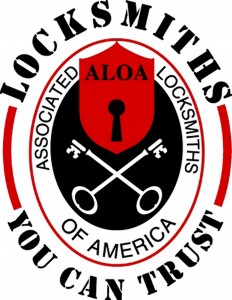I wrote the following article with my locksmith friends in mind but the overall concept is apropos to any small business and the entrepreneurs who operate those businesses.
Elbert Hubbard advised fledgling businesses to “find a niche and fill it.” Sometimes that niche is offering a service or a product that no one else offers. At other times it’s simply a willingness to accommodate the needs of your customer even when their request is outside your normal business parameters.
**********************************
Of Pots and Pans and Garbage Cans
By: Jake Jakubuwski
Copyright 2012. All rights reserved
On a recent forum visit, some of my locksmith forum buddies were discussing their preferences as to the types of locksmith work they favored.
As you might expect, the discussion was all over the place. Some specialized in one thing and some in another and several were simply General Practitioners, so to speak.
One poster to the forum said that he would perform whatever locksmith services were necessary (And presumably legal) in order to make a living. I agreed with that but told him it was better if you could offer the services you preferred rather then a lot that you “had” to offer just to keep groceries on the table and your son or daughter’s college tuition paid.
The whole discussion got me to thinking that things today really are a whole lot different then they were when I was at the point where I knew everything there was to know and I was ready to spread my wings and fly!
Actually, I was fifteen and I wasn’t exactly soaring with the eagles so much as I was riding Shank’s Mare (Walking) with my thumb stuck out and pointing in the direction that I was headed. Every now and again, some good-hearted soul would see my thumb and stop and give me a ride just down the road or maybe even to the next small town, large city or the next crossroads.
Of course, there were always a few folks that looked at me and pointed their index finger towards the sky as if I they thought I needed to correct the direction I was traveling!
Regardless, I learned a lot about working to keep my belly filled, my feet dry and staying at the Y or a mission.
I picked apples in Western Maryland, peaches in Georgia, watermelons and tomatoes in Florida and when I wasn’t busy pursuing those lively hoods, I was mopping floors in restaurants, washing dishes, scrubbing garbage cans, sweeping parking lots or trying to get the remains of “homemade” bean soup out of a ten gallon cooking pot.
Since most of the jobs that I had did not require a Master’s Degree, I looked on myself as sort of a handyman-jack-of-all-trades who could, at a moments notice, drop my broom and clean a restroom — or peel a bag of potatoes.
For more on my varied and checkered career, you can download my FREE book: “PURE JAKE: The Book” and gallop along with me on some of my travels and travails.
http://www.purejake.com/wp-content/uploads/catablog/originals/PURE%20JAKE%20THE%20BOOK.jpg
Somewhere along the line, I picked up my GED, and wanted to settle into something solid, stable and secure. I drove a laundry truck, worked construction, did handyman type jobs and finally landed a job at Sears selling sewing machines and vacuum cleaners. That was after a stint selling used cars.
What does all of that have to do with locksmithing? Even more to the point, what does it have to do with anything at all?
Well, by the time I finally stumbled my way into locksmithing, I had left Sears, owned my own commercial floor cleaning company, a carpet cleaning company, and a campground reservation system. When I started my own locksmith business I would not hesitate to hang a security mirror, put a new handle on a commercial oven or replace a florescent tube in a light fixture.
I was a locksmith but if I saw a couple of bucks laying around that I could pickup by installing a new mirror over a sink, re-gluing Formica to a countertop or installing a mailbox on a fence post — my time was my customer’s as long as they were willing to pay for it.
In other words, I did whatever I had to do to make a living. Just like I did when I was ‘on the road’.
So … here’s my take on specializing. If you can specialize in any aspect of our craft and make enough money doing only what you like to do best — go for it.
I know a lot of locksmiths who live and work in areas where the locksmith sandbox just isn’t big enough for them to make enough money specializing in safe work, or automotive, or EAC. If you’re in that situation, do whatever you must to make the money you have to make to keep yourself in business, your kids in school, your health insurance current and still have enough to enjoy a dinner and a movie occasionally.
That means being willing to go where the money is, or do whatever is necessary to make a living. Sometimes, that work may not exactly fit the normal job description of a locksmith but the person who is willing to do pots, pans and garbage cans can always make a living.
That’s one of the reasons I so often suggest door service and repair. Or Electronic Access Control. Or even saw and knife sharpening. All are easier, neater, cleaner, and smell better then garbage cans.
